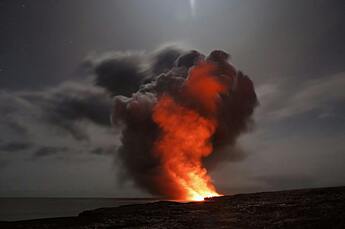
Biotech Future - The clinical trials and tribulations of war
Navigating Clinical Trials Amidst Conflict
Common issues biotechs face during periods of war...
R&D Disruption
Wars scatter scientists, halt vital research, and spike costs for biotech companies.
Clinical Trials Upended
Conflict disrupts trials, hinders participant access, and adds uncertainty and costs.
Clinical Trials Upended
Conflict disrupts trials, hinders participant access, and adds uncertainty and costs.
Commercial Woes
War hits production, distribution, and trade, causing shortages and market access hurdles.
Economic Strain & Inflation
War squeezes economies, inflates costs, tightens resources, and hampers biotech growth.
Economic Strain & Inflation
War squeezes economies, inflates costs, tightens resources, and hampers biotech growth.
Take Action in Biotech Resilience: Ready to navigate the trials and tribulations of biotech during times of war? Sign up today.
War and conflict can have a significant impact on the biotech industry. Their effects vary depending on the specifics of the conflict, the location of the affected countries, and the duration of the conflict.
In this article, we will take a deeper look at how exactly war affects life science leaders, who it disadvantages the most, and who it might even benefit from it.
But first, let’s embrace the realities.
The Realities of War on Biotech
In terms of research and development, or R&D, war can have a detrimental effect on the biotech healthcare industry. Conflicts often disrupt scientific research, leading to a slowdown or even cessation of development efforts, and an increase in R&D costs.
Russia-Ukraine conflict
With the most recent advancements of conflict between Russia and Ukraine, for instance, many effects came as a result.
Clinical trials
Clinical trials in Europe took a hit when the Russia-Ukraine conflict escalated. The reason for this was that many trial patients came from Russia and were no longer able to migrate to participate in research. The localization of these clinical trials meant securing a range of patient-types was more difficult, especially for trials taking place in non-diverse areas.
2-3 year-long clinical trial projects were suddenly expected to take 4-5 years instead, disrupting periods of exclusivity for investors and VC companies who watched the seconds and dollars tick away.
‘The effects of war raise the cost of innovation’, says Roop Chandwani, CEO of Mazards, a life science executive search firm. ‘A cost that comes from the pockets of patients.’
War also squeezes economies and causes inflation. This is the case with the current inflation issues we are seeing around the globe due to the Russian-Ukrainian conflict; inflation especially apparent in energy and fuel costs.
Further Effects
Other effects of war on the biotech industry include scientists and staff who might be forced to flee their homes, taking their expertise and knowledge with them.
On top of that, labs and research facilities often become damaged or destroyed. This leads to the loss of valuable equipment and data.
In extreme cases, entire countries may be devastated, leading to long-term consequences for the biotech industry.
Stimulation
On the other hand, war can also drive innovation in the biotech industry. For example, in times of war, there may be an increased demand for medical treatments and vaccines to address new or existing health threats.
‘This can lead to increased investment in research and development and the acceleration of drug development efforts,’ says Aamir Butt, Chairperson and CTO of executive headhunting firm, Mazards. ‘In other words, war stimulates the economy.’
Commercialization Issues
In terms of commercialization, war can also have a significant impact on the biotech industry. Conflict can disrupt the production and distribution of drugs, leading to shortages and increased costs.
Supply chains may also be disrupted, leading to difficulties in obtaining raw materials and distributing finished products. Trade sanctions and embargoes can also have a negative effect on the biotech industry, limiting the availability of products and slowing the flow of investment.
Conclusion
In conclusion, war can have a complex and far-reaching impact on the biotech industry. While conflict can disrupt research and development and commercialization efforts, it can also drive innovation and lead to increased investment in the sector.
Will the Russian-Ukrainian Conflict further affect energy and supply costs, squeezing economies tighter and inflating costs for innovation and marketability?
The effects of war on the biotech industry can vary greatly and will depend on the specifics of how the Russian-Ukrainian conflict—and any further conflicts to develop—plays out.
Mazards, one of the top retained life science executive search firms in London, commissioned this piece from Dastrum, a life science marketing agency .
Ensure your company is economically prepared for times of war. Sign up to engage with Mazards and prepare for all that's around the corner.



